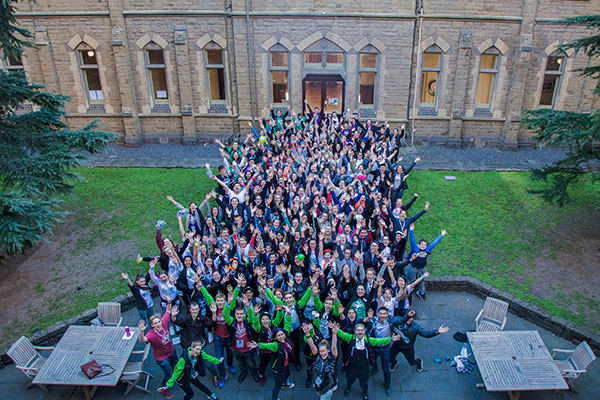In many countries around the world today, the focus of the International Youth Day theme “Transforming Education” will be on topics like limited access to a secondary level education, or the proportion of girls who do not achieve an education at all.
In Australia, in Victoria, our prosperity and democratic systems allow us the privilege of taking for granted that all our young people will have access to an education.
The power of education cannot be understated. It empowers young people with skills and knowledge to live full lives, builds confidence and connections, and breaks down barriers to opportunity. Education is key to shaping societal values, and has been a key part of Australia’s success on the global stage.
So the key questions for us on this day must be:
- Is the education provided to our young people fit-for-purpose for the contemporary age?
- Does it create rounded, multifaceted young people who are curious and caring about the world?
- Will it prepare them for the uncertainty of an ever-faster-changing world, and jobs which may not even exist yet?
- Are supports in place to reduce barriers for vulnerable and marginalised young people?
The answer is probably “sometimes”. There are definitely schools that offer an educational experience that blows the mind. And at the other end of the spectrum there are also schools that struggle, or provide a sub-optimal experience for their students.
Research shows that excellence in teaching is the single most powerful influence on students’ achievement. But are we giving teachers enough time to build holistic connections with students? In Australia, 25 of the 44.8 hours that teachers work are spent on non-teaching tasks. Spending time with students is critical in helping build connection and motivation, and the stronger relationships and guidance can change young people’s lives.
We also need to move away from the idea that education only happens in schools. Youth work can and does play a vital role in supporting young people, especially those who are vulnerable or marginalised, to develop skills, find their identity, and connect and contribute meaningfully to their communities and the world. Without youth workers, many of these young people would fall through the gaps, with huge social and economic ramifications.
Youth work can and does play a vital role in supporting young people, especially those who are vulnerable or marginalised, to develop skills, find their identity, and connect and contribute meaningfully to their communities and the world.
–Katherine Ellis
The Marram Nganyin Aboriginal Mentoring Project, a partnership between YACVic Rural, the Koorie Youth Council and five Aboriginal and Torres Strait Islander communities, upskills and delivers mentoring programs to Aboriginal and Torres Strait Islander young people. In doing so, the program recognises the power of communities in transforming education and providing role models for young people.
So “transforming education” must also be about acknowledging and investing in the many people who play a key role in a young person’s development.

We must also recognise that young people are taking a lead in defining the educational experience they want and need, and driving transformative action to achieve it.
Kudos to the Victorian Student Representative Council (VicSRC), who are training students to engage with educators and authorities to influence governance, curriculum, and learning environments. In VicSRC’s Teach the Teacher program, students encourage, inform and work with teachers to make positive changes to their school. At Robinvale College, four hours away from Melbourne, the program has helped the whole community work together to transform the students’ experience.
The Youth Disability Advocacy Service (YDAS)’s Emerging Young Leaders Program supports and empowers young people with disability to advocate and lead change within their school, their workplace and/or the broader community. These young people, not traditionally recognised as having leadership potential, are actively transforming their educational experience.
Finally, I want to acknowledge the young leaders of the School Strike for Climate movement. These young people are taking tangible, real world action to secure all our futures, in the absence of the bold and urgent action needed from government and industry leaders. While many have criticised the school strike approach, I firmly believe young people will learn far more from building agency and connection around this crucial issue than they will from spending that one afternoon in a classroom. I hope everyone will join them on the fight for our lives on 20 September.
In this dynamic, complex, uncertain world, young people can and must play an informed role in shaping and transforming their education experience. And in shaping and transforming the world.
Katherine Ellis is the Chief Executive Officer of Youth Affairs Council Victoria





